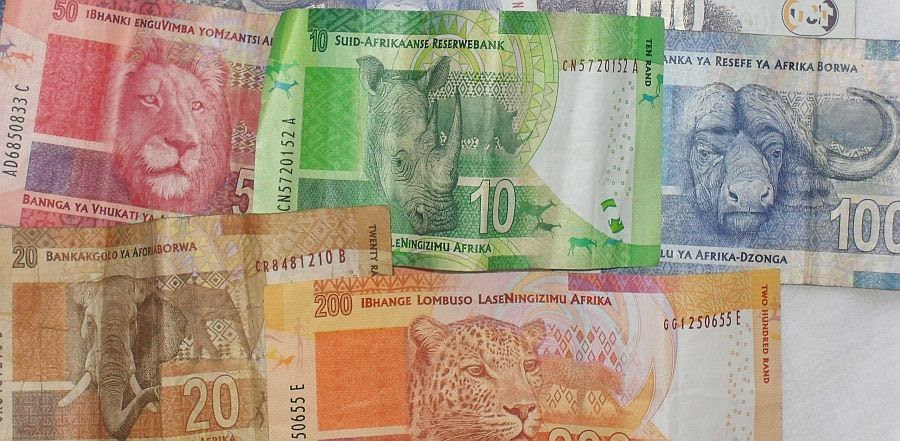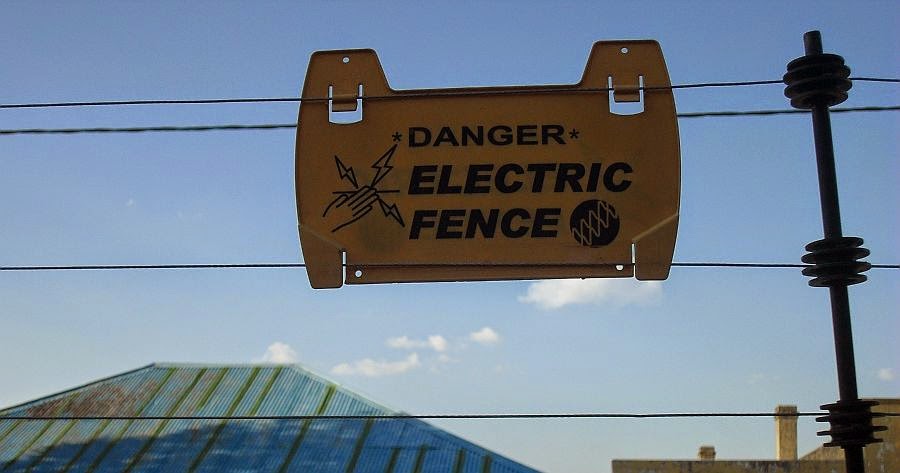Now that we
are in South Africa for already six weeks we slowly start getting used to
everything. I think that at Cotlands it’s not even that difficult to settle in,
because we don’t have to change our living standard that much: We have got a
big bedroom, we get good food, we can use a car and as we are not living in a
host family we have got many freedoms that other volunteers don’t have, such as
not being told when to be at home for example.
To give you
an impression of some things that were sometimes maybe a little bit difficult
to arrange with or just unfamiliar, even in a positive way, I collected my top
10 of things to get used to in South Africa.
1. Driving
Back in Germany when I was asked if I could imagine to drive for my
project I was at first very enthusiastic about the idea because everything is
much easier if you’re allowed to drive and Cotlands is the only project that I
know for the moment where the volunteers are allowed to drive. After hearing
many stories about the South African driving style - like that no one respects the
traffic lights, that are called robots in South Africa, that drunk driving was
normal and that it was ok to cross red lights in the dark because it would be
too dangerous to stop – I was very curious what driving here would actually be
like and expected everything. I was also excited about left-hand driving and
imagined it to be very unfamiliar – especially changing gear with the left
hand.
But as soon as we started driving here we realized that it is much less
difficult than expected. The biggest difficulty was to activate the indicators
and at first I always activated the windscreen wiper instead. Our car also was
a little bit difficult at first, as it’s a very old bulky truck and parking
always is quite some challenge. But all in all we got used to driving very
fast.
The second thing that many people seem to think
of is Hitler. And what’s for us terrifying about that is that some people even
had a positive opinion of him because of passionately pursuing his objectives. Most
of the time they understood why we don’t like him. But anyway it’s very strange
to us if people that we barely know frankly and without hesitating tell you
what a great man Hitler was. I don’t think that I’ll get used to that very
fast!

Something
that sounds stupid but was quite difficult in the beginning was the common
greeting phrase “how are you”. Of course we know that question from Germany but
it’s not used that constantly. At first we always were too slow to ask back
because the person had already passed us and we felt quite unfriendly, but now
we really got the hang of “Fine. How are you?”




Our food here is comparatively luxurious and most of the other volunteers are kind of envious of it. In the morning we always eat Cereals with a lot of fresh fruits. We normally get the fruits in our food donations and if we are lucky we get fancy fruits like papaya or guave and other nice things like strawberries, raspberries or blueberries for example.
Unfortunately
most of the things that we heard about the South African driving style is true.
There really are many people that drive drunk and it’s not rare that you see
people ignoring red lights. Another difficulty are the minibus taxis that are
driving very unpredictable and reckless.
2. Typical German?
Something that can sometimes be a little bit frustrating is being asked
where you are from as soon as you say something very easy as hello. But most
people even here that we are from Germany and then the first thing always is
that they try to impress us with the German words they know, such as “Guten
Tag”, “Wie geht’s?” or “Was geht?”, “Scheiße” and “Arschloch”. But we didn’t
really expect people to know other words, because those are probably the most
common words to know in different languages.
Even though I knew that people think Germans would drink a lot of beer I
didn’t expect them to have such strange ideas concerning Germans and beer. At
least many people here are truly believing us that we always start our day with
cereals with bear instead of milk or that we would already feed our babies with
beer so that they can get big and strong.
3. Walking in the streets

For
two weeks now we always have to bring the two older children living at Cotlands
to school. The way is not very far but it always takes quite some time. First
of all because the two of them like to walk very slowly and stop every ten metres
to look at something or pick something up. Secondly because so many people want
to talk to you. Most of them are just saying hello but on the first day we were
really confused when a horde of children ran towards us and tried to hug us all
at the same time. When we looked closer we could recognize some of them from
the afternoon care, but it also happens that random children want to hug us –
something that never happened to me before in Germany.
4. Hey, how are you?
5. South African Rand

Even though I don’t have to calculate that much anymore the translation
from Rand to Euro is always a little bit exhausting. In most cases I can judge
the prices in Rand but sometimes it’s better to calculate in Euro because then
I have a much better feeling for the values. But as 1 Euro is worth about 14
Rand calculating is quite some challenge after almost six months without
school!
At least the banknotes look much better than Euro!
6. Food



Our food here is comparatively luxurious and most of the other volunteers are kind of envious of it. In the morning we always eat Cereals with a lot of fresh fruits. We normally get the fruits in our food donations and if we are lucky we get fancy fruits like papaya or guave and other nice things like strawberries, raspberries or blueberries for example.
For lunch we always get food from our Cotlands cook. We often get
typical South African things like Pap, a traditional polenta made of ground
maize, or rice with chicken and sauce.
Supper is always our favourite meal because that’s when we eat all the
stuff that we get in the Woolworth donations. We get the donations twice a week
and to see what is in the boxes is always a little bit like Christmas. If we’re
lucky we get things like sushi, little sausage or chicken pies, samosas, fish
and lots of different things. We still don’t know the whole variety so that it
still keeps being exciting.

I hope that I could give you a little impression of life in South Africa especially because my list got much longer than I intended!
7. Punctuality
Before we came here we already heard a lot about South African punctuality or, to put it another way, unpunctuality. But as we came here we first were positively surprised because in our project everyone seemed to be in time as we knew it from Germany. But by now we discovered that Cotlands maybe is an exception because in our free time when we’re doing things with friends one of the favourite sayings seems to be: “South Africans don’t follow time, we have time!” That’s why we aren’t surprised anymore when we are invited to a Braai at half past six and we hungrily start eating at about midnight.8. Security

Security
is something that we also got used to very fast. At first it was strange to
live behind an electric fence and that almost every house is surrounded by a
high wall. It seemed to be annoying to always lock the car from the inside and
leave the windows shut or to have a security guard that constantly watches the
house. Also not walking in the streets after four o’clock and advices like
always walking on the busier side of the road and minding gates because people
could just pull you inside sounded strange. But by now all that just feels
normal and restricts us much less than it might sound like as we have our car.
9. Afrikaans
As Afrikaans
is the first language of most white people in South Africa it happens that
people try to speak to us in Afrikaans. At first I always thought that they
were speaking English and that it was my fault and I just didn’t understand them.
It’s not that exceptional that people talk to us in English and we can’t understand
them straightaway because there are so many different accents and sometimes you
don’t understand the easiest things just because of the pronunciation. Again other people’s English is very good to
understand and normally I comprehend what people are telling me it sometimes
just needs some concentration. But I don’t really understand any Afrikaans,
only if it’s written it’s sometimes understandable, but most Afrikaans speaking
people seem to understand us talking German quite well.
10. New nicknames
The last thing to get used to is that most people can’t really pronounce
my name. At first I always introduced myself as Frederike but no one could pronounce
the name and still less remember it. So I started to say that I’m just Rike and
that’s much better, even though it sounds more like Rikaa. Another new nickname
for me is Frederista. I don’t really know why but somehow two of the children
are convinced that that would be my name and don’t believe me if I tell them
that it’s not.
But most of the children don’t call us with our names anyway. For the older
babies we are Mama, the Early Learning Group children just call us teacher and
the afternoon care children call us Mam. Especially being called Mam still
sounds very funny.
I hope that I could give you a little impression of life in South Africa especially because my list got much longer than I intended!




No comments:
Post a Comment